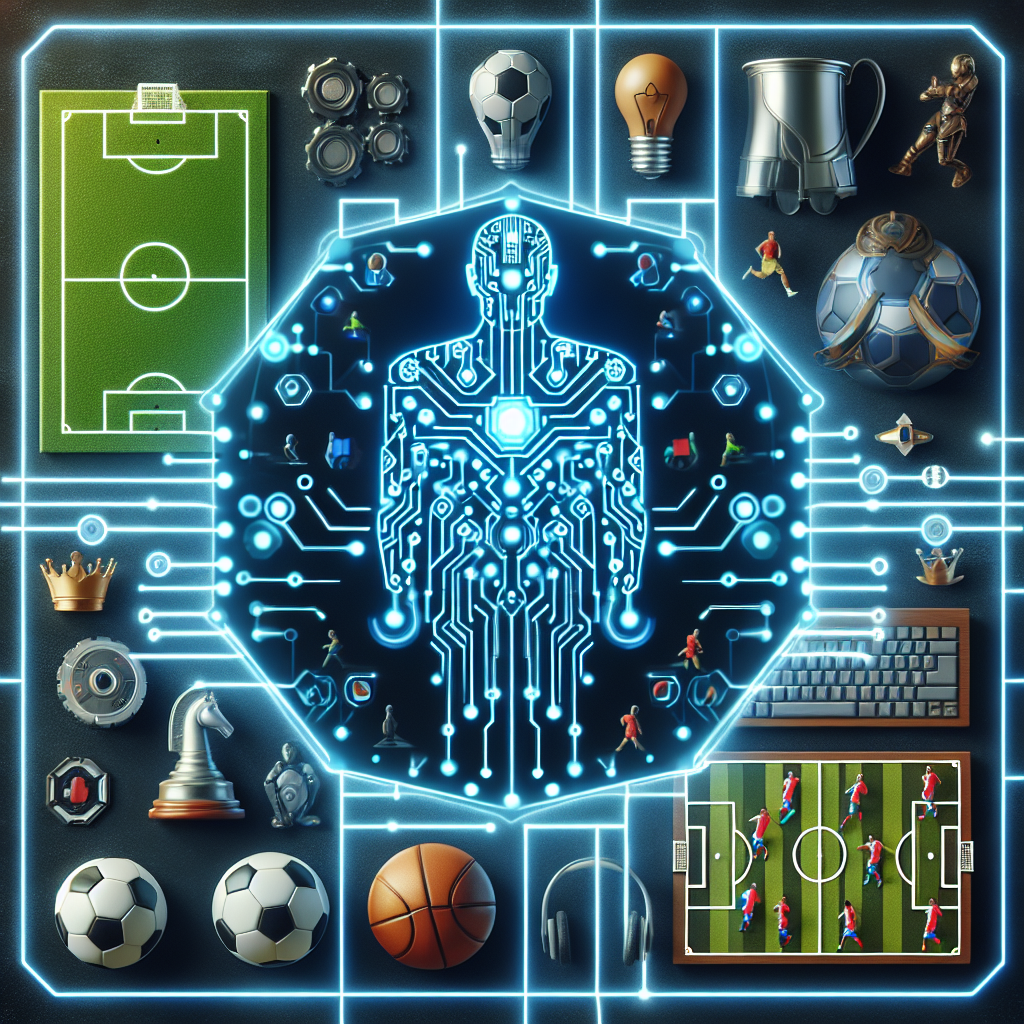The Evolution of Sports Strategy with the Help of Artificial Intelligence
Artificial intelligence (AI) has been revolutionizing various industries, and sports is no exception. AI has played a significant role in the evolution of sports strategy, helping teams and athletes make better decisions, analyze data more effectively, and improve their overall performance. From improving player recruitment to in-game decision-making, AI has transformed the way sports are played and managed.
In this article, we will explore how AI is changing the landscape of sports strategy, the benefits it brings to teams and athletes, and the potential challenges that come with implementing AI in sports.
How AI is changing sports strategy
AI has had a profound impact on sports strategy in several ways. One of the key areas where AI has made a significant difference is in player recruitment. By analyzing vast amounts of data, AI algorithms can identify potential talent that may have been overlooked by traditional scouting methods. AI can analyze player performance metrics, injury history, and other factors to help teams make more informed decisions when recruiting players.
In addition to player recruitment, AI has also revolutionized in-game decision-making. Coaches and players can use AI-powered tools to analyze game data in real-time, helping them make better decisions on the fly. For example, AI can help coaches determine the optimal lineup for a game or suggest strategies based on the opponent’s playing style.
AI has also been used to enhance training programs for athletes. By analyzing data on player performance, AI can help coaches tailor training programs to individual athletes’ needs, helping them improve their skills and performance. AI can also be used to predict and prevent injuries by analyzing player movement patterns and identifying potential risk factors.
The benefits of AI in sports strategy
The use of AI in sports strategy has numerous benefits for teams and athletes. One of the key benefits is the ability to make more informed decisions based on data analysis. AI algorithms can process vast amounts of data quickly and accurately, providing teams with valuable insights that can help them improve their performance.
AI can also help teams and athletes optimize their training programs. By analyzing data on player performance, AI can help coaches identify areas for improvement and tailor training programs to address them. This can lead to more effective training sessions and better overall performance on the field.
Another benefit of AI in sports strategy is the ability to predict and prevent injuries. By analyzing player movement patterns and other data, AI algorithms can identify potential risk factors for injuries and help coaches take preventive measures to reduce the likelihood of injury.
Challenges of implementing AI in sports strategy
While AI has many benefits for sports strategy, there are also challenges that come with implementing AI in the sports industry. One of the key challenges is the potential for bias in AI algorithms. If not carefully designed, AI algorithms can produce biased results that may impact decision-making in sports. Teams and athletes must be aware of this potential bias and take steps to mitigate it.
Another challenge of implementing AI in sports strategy is the cost and resources required. Developing and implementing AI-powered tools can be expensive, and not all teams may have the resources to invest in AI technology. Additionally, teams and athletes may require training to effectively use AI tools, which can also add to the cost and resources needed.
FAQs
Q: How is AI used in player recruitment in sports?
A: AI is used in player recruitment to analyze player performance metrics, injury history, and other data to help teams make more informed decisions when recruiting players. AI algorithms can identify potential talent that may have been overlooked by traditional scouting methods.
Q: How does AI help in-game decision-making in sports?
A: AI helps in-game decision-making by analyzing game data in real-time and providing coaches and players with valuable insights. AI-powered tools can help coaches determine the optimal lineup for a game, suggest strategies based on the opponent’s playing style, and make better decisions on the fly.
Q: How does AI enhance training programs for athletes?
A: AI enhances training programs for athletes by analyzing data on player performance and identifying areas for improvement. AI can help coaches tailor training programs to individual athletes’ needs, helping them improve their skills and performance.
Q: What are some of the benefits of using AI in sports strategy?
A: Some of the benefits of using AI in sports strategy include making more informed decisions based on data analysis, optimizing training programs for athletes, and predicting and preventing injuries.
Q: What are some of the challenges of implementing AI in sports strategy?
A: Some of the challenges of implementing AI in sports strategy include the potential for bias in AI algorithms, the cost and resources required, and the need for training to effectively use AI tools. Teams and athletes must be aware of these challenges and take steps to address them.
In conclusion, AI has had a profound impact on the evolution of sports strategy, helping teams and athletes make better decisions, analyze data more effectively, and improve their overall performance. While there are challenges to implementing AI in sports, the benefits it brings far outweigh the potential drawbacks. As AI technology continues to advance, we can expect to see even more innovations in sports strategy in the years to come.

